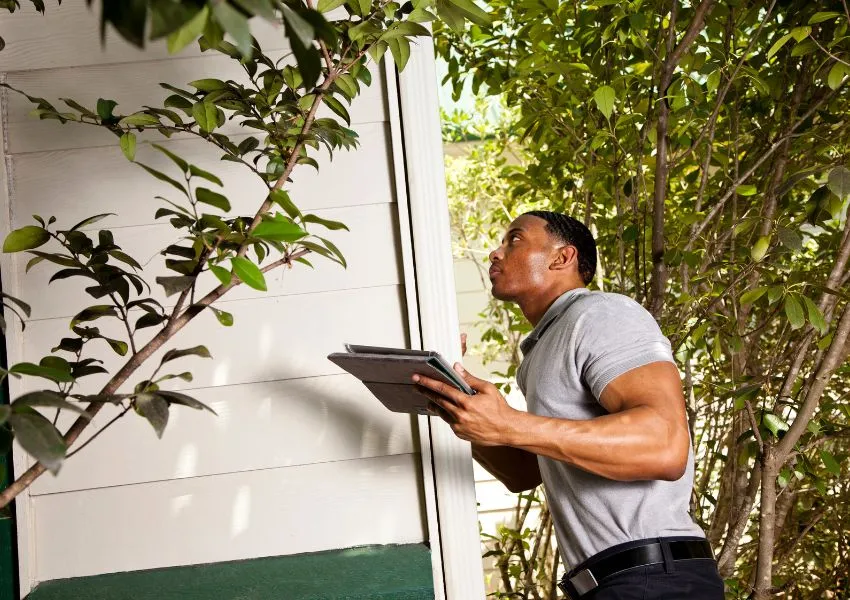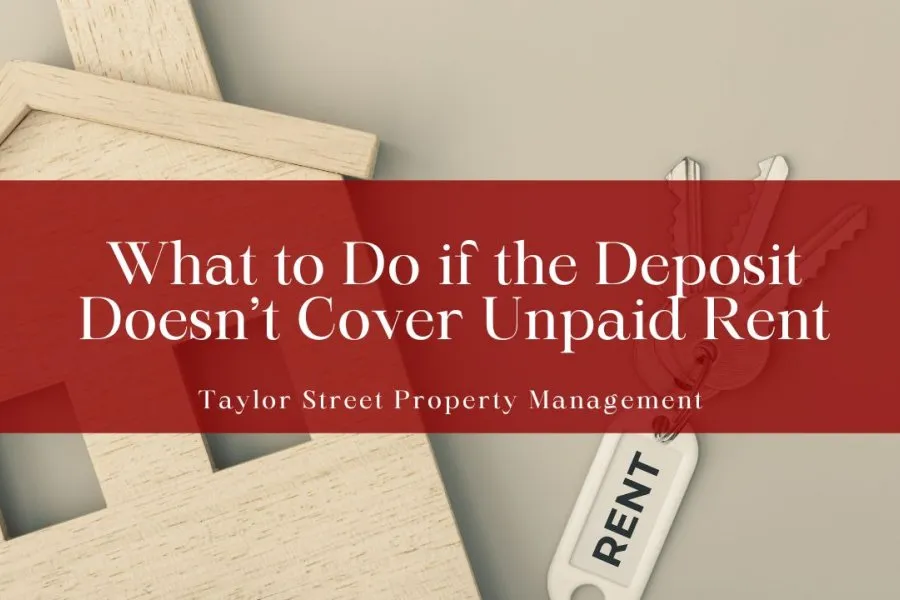Property owners should always ask for a security deposit when a renter initially moves in. This is being done to compensate for missing rent money or repairs. The security deposits are usually returned when a rental or lease term is over.
Even though collecting a security deposit is a good idea, it is not usually enough to pay for all damages or overdue rent. So, what happens if the tenant’s security deposit is insufficient to pay the full amount of delinquent rent or damage-related expenses?
At Taylor Street Property Management, we believe knowing your options regarding whether the deposit is insufficient to pay for all of the outstanding rent or damage is important. So, we have put together this article:
Send a Letter of Demand
You must issue a demand letter for the remainder of the tenant’s debt if the combined cost of the damages and unpaid rent exceeds the security deposit. Make sure to include an itemized list of any damages to specify what the tenant is responsible for.
The full list of damages, cleaning costs, and unpaid rent should be included in the demand letter, along with the amount you seek and the deadline for payment. Be as precise as you can in your letter of demand and provide contact details so that tenants can call you with any questions about making payment.

Consult Your Tenant
Sending a letter is an option if you are unable to speak with the renter in person. Explain why you’re only going to partially or not at all reimburse the security deposit in the letter. Ensure that you send the letter within the legal window of time though.
Hire a Collection Agency
You may also decide to use a third-party collector or property manager if you’re too busy. They can assist in pursuing collection for a predetermined fee. While some will charge a flat price, others will use a % commission.
Collection companies can be more successful in pursuing a late renter because recovering unpaid rent is their area of expertise. Selecting a trustworthy one is crucial if you want to stay out of legal trouble. You can rely on Taylor Street Property Management to resolve rent-related problems on your behalf while abiding by the law and defending your rights as the property owner.
Refer to Small Claims Court
If the tenant disregards the demand letter, it could be time to consider going to small claims court. Small claims court may seem like the ideal choice, but there are some drawbacks. Always weigh the benefits and drawbacks before acting, as well as the amount of money that is owed to you.

This might be a good strategy to get the overdue rent. But if you can provide compelling evidence, this legal strategy, which is more thorough, may give you the upper hand.
Going to small claims court does not ensure that the tenant will pay you for a number of reasons. To decide whether it’s worthwhile, take into account the accompanying costs and time commitment of the legal processes.
Prior to pursuing any legal action on your own, you should always seek legal advice. Making any errors from a strictly legal standpoint could result in a lost lawsuit or even a countersuit from your resident.
Evict the Tenant
Be on the lookout if a renter continues to owe rent after the due date has passed. Be clear while communicating and implementing the rental payment policy, even though there may be times when a renter has trouble making rent payments.
The eviction procedure can be started if the renter ignores the “pay or quit” notice. Waiting longer may have negative consequences such as dealing with their property. You lose a lot of money if you decide to send the warning only after the tenant has repeatedly neglected to pay the rent.
How to Avoid Loss From Non-Payment
In order to avoid suffering loss due to unpaid rent or extensive property damage, you should:

Routinely Inspect the Property
Maintaining the home requires keeping an eye on how it is being used and cared for. This is why frequent property inspections are so important. Keep your inspections to a few times a year and always give your renters enough warning as a landlord to protect their privacy.
Have this information included in the lease agreement if you intend to conduct routine inspections, and always give the renters a few days’ notice before starting the inspection.
Conduct Thorough Tenant Screening
It’s important that you thoroughly vet your tenants.
- Are they financially capable?
- Do they earn at least three times as much as the monthly rent?
Take a look at their prior work to get to know them. Consult references and look at the history of the rent.
Some landlords believe that doing tenant background checks is a waste of time and a headache. To avoid dealing with breaches and non-payment of rent, it always pays to screen your tenants. This action will help you maximize the rewards of your real estate investment.
Bottom Line
There are several strategies available to you as a landlord for collecting overdue rent. You can write a demand letter and communicate. Other collection methods are also available, such as going to small claims court and working with a collection agency.
Improve your tenant screening procedures if you want to avoid the inconvenience. Sending alerts as soon as a rental payment issue arises will reduce future losses. Never lose sight of the fact that paying your rent keeps your firm afloat.
If you need help managing your property and have a lot of expertise in rental rules, contact Taylor Street Property Management to help you with any property management service you need.
Disclaimer: This blog should not be used as a substitute for legal advice from a licensed attorney in your state. Laws change, and this post might not be updated at the time of your reading. Please contact us for any questions you have in regards to this content or any other aspect of your property management needs.


